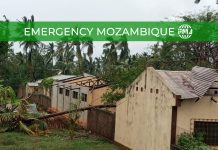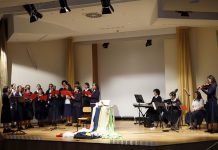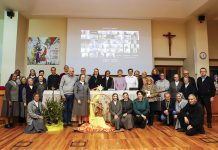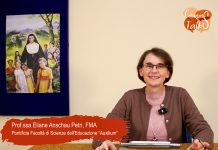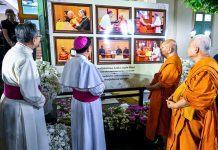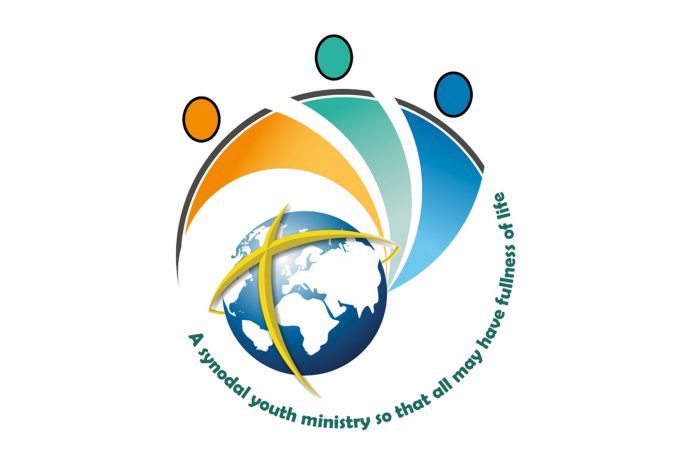Rome (Italy). On 9 June 2023, the online formation meeting of the Youth Ministry Coordinators of the Interprovincial Conference Africa-Madagascar (CIAM) was held, organized by the Youth Ministry Sector of the Institute of the Daughters of Mary Help of Christians. At the request of the Coordinators, the formation meetings were opened in the presence of the Youth Ministry teams of the Provinces and, on this occasion, on the theme, “Young people, you are God’s now” (Christus Vivit, 178), listening to the young representatives of the Provinces.
Listening to young people is in fact one of the commitments that the Sector has proposed for the six-year period 2022-2027, according to what is expressed in the Acts of the 24th General Chapter: “Within the horizon of a renewed youth ministry, let us give impetus to vocation promotion starting from listening to young people, using strength and resources in accompaniment and discernment, involving the whole educating community” (Acts GCXXIV, n. 35).
To ensure a fruitful dialogue, each Province was asked to invite one or two young participants, aged between 17 and 25. To prepare well for the meeting, two questions were sent to them in advance, on which to then direct the sharing.
The first question was about the meaning of being young today. Lina, aged 24, from Kenya, East Africa O. L. of Hope Province (AFE), replied as follows:
“Being young means progressing towards a future without security; it means transforming problems into opportunities and solutions. Being young implies facing challenges such as not finding a job after studying. This leads many young people to get involved in many uncomfortable situations: computer crimes, violence. Social media, while having a positive side, also has negative one for us young people. There is also another challenge regarding new lifestyles, for example the development of a new culture of marriage in LGBTQ communities, which has led to conflict between young people and their families, and in society in general”.
The second question concerned the accompaniment of young people in the Salesian Youth Movement. Janet aged 22, from Mozambique, from St. John Bosco Province (MOZ), expressed herself as follows:
“The Salesian Youth Movement is important for accompanying young people, as it offers an opportunity for human and Christian formation. It allows for the exchange of ideas between young people who share the same faith. SYM is also inclusive of young people, regardless of their characteristics, without any kind of judgement. It is educational, because within the SYM the young person learns to make his/her own values such as respect for others, justice, and peace. It also gives them a space to express their feelings and thoughts, along with their talents”.
Jean Eudes, of the Mother of God Province (AFO), answered the same question as follows:
“SYM is a meeting of young people from different backgrounds with different concerns, which allows them to share lived experiences and find suitable solutions together, to then look for some way out. Formation, teachings, games/entertainment, debates, Eucharistic, and penitential celebrations and other activities within the SYM allow young people to express themselves about their reality, to be accompanied for a complete development both from a spiritual point of view, whether physical or material or professional”.
“The Salesian Youth Movement is very significant in accompanying young people, as it leads to a better life as Christians. It is a point of reference for discerning good from evil, living with joy. It allows you to live the truth with yourself and with your neighbor. It also allows us to grow in faith and love. Furthermore, it makes it possible to know and do God’s will, letting oneself be involved in the mission, with the awareness that “I am a mission” (EG 273) among young people”. These are the words of 26-year-old Melaine Georgette, from Abijan, in the Ivory Coast, AFO Province.
In the dialogue on the significance of the Movement, the young people, who were also asked to make some proposals for effective accompaniment, gave their suggestions: clarifying the objectives of the SYM; making young people aware of and forming them on its proposal; planning themes and meetings; ensure planning for SYM initiatives; organize moments of listening.
Despite the difficulties due to languages since the meeting was held in Italian, French, Portuguese, and English, the moment was lived in the joy of being together and in an atmosphere of listening. The young people, together with the coordinators of YM CIAM, appreciated and thanked for the initiative, expressing the desire to have similar moments on the other topics in the program.


